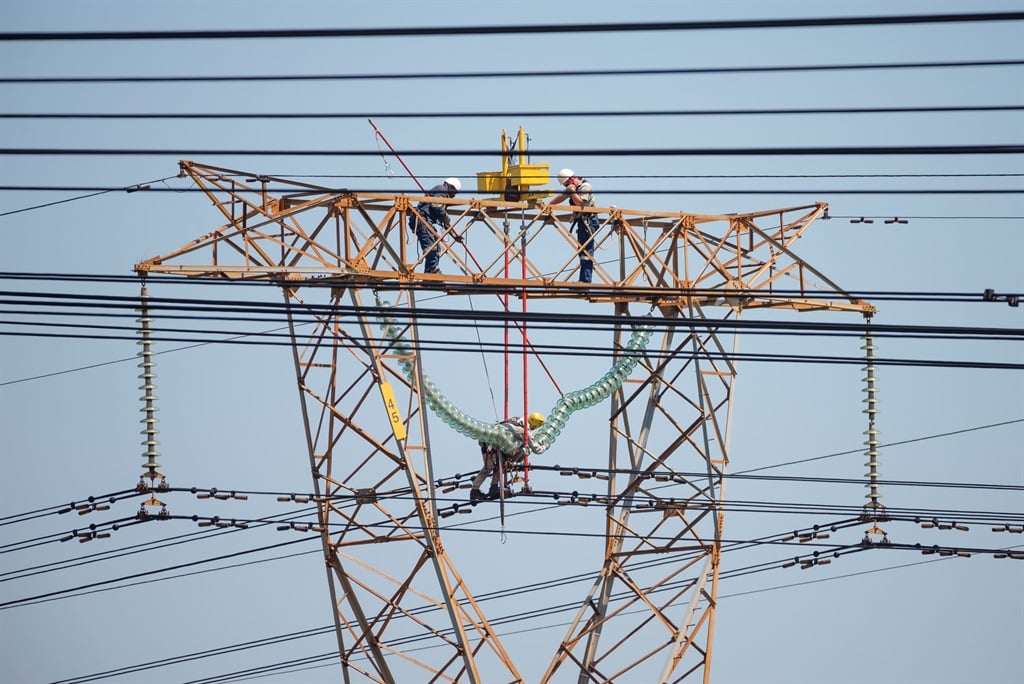
- Eskom projects a net loss of R15.1 billion for the 2022 financial year compared to a projected net loss of R19.8 billion for the 2021 financial year.
- The National Union of Mineworkers and National Union of Metalworkers of SA demanded a 15% increase, while Eskom is offering 1.5%.
- Eskom said it was in no position financially to meet any of the demands that have been presented.
Eskom is projecting a net loss of over R15 billion for the 2022 financial year and average cost per head for employees has increased far above the rate of inflation for the past three years, the power utility has said.
As things stand, if it is to break even this year, the utility added, it would have to cut the cost of coal by nearly a third.
Eskom was responding on Thursday night to the National Union of Mineworkers' (NUM) analysis of wage tiers in the power utility, and claims by the union that Eskom was misleading the public about the average wage of employees.
According to Eskom, its offer of a 1.5% increase is based on affordability. NUM and the National Union of Metalworkers of SA (Numsa) want 15%. Solidarity wants 9.5%.
Unions are further demanding a housing allowance from R3 425 to R7 000 and cellphone allowance from R500 to R1 000.
Talks are set to conclude on 3 June.
Eskom spokesperson Sikonathi Mantshantsha said Eskom met with the three unions at the bargaining platform talks where it rejected their demands as unaffordable.
"Eskom's 1.5% increase in the basic salary, conditional upon the labour unions accepting Eskom's proposed restructuring of some of the benefits enjoyed by its bargaining unit employees where excesses have been identified is the final offer. Eskom is in no position financially to meet any of the demands that have been presented," said Mantshantsha.
A document also released by Eskom on Thursday said although employee benefit costs were 17% of revenue, the percentage increase in the specific cost category was as significant as the impact on revenue.
"Revenue has to fund several cost items and not only employee benefit costs. The average cost per head has increased far above inflation at 7.8% from the 2018 to the 2021 financial year. What is important is affordability," the document said.
The document said Eskom was projecting a net loss of R15.1 billion for the 2022 financial compared to a projected net loss of R19.8 billion for the 2021 financial year.
"Cash from operations is not sufficient to fund debt servicing cost and a portion of capex (capital expenditure). Eskom, therefore, has to rely on government support – equity and guarantees," the document said.
The document said the average increase in coal costs purchased is 5.8% for 2021 and that if Eskom were to break even in 2021, a reduction of 30% in purchase cost of coal was required. It projected that the average cost of coal would reach R663 per ton in the short to medium term of 2021.
The joint statement by NUM and Numsa said the employees they represent in the Central Bargaining Forum do not earn the R773 000 "average salary of Eskom workers" and that the employees they represented made up at least two-thirds of Eskom employees, or "approximately 29 400 people".
"Workers in the CBF, the majority of whom are represented by the trade unions Numsa and NUM are not executives and their salaries and packages do not even come close to the packages of executives," the joint statement by the unions said.
The unions said employees at lower task grade were earning a minimum of R175 000 per annum, while supervisor-level employees in the bargaining unit are earning R477 300 per annum as a ceiling for those that unions negotiated for.
Eskom's interim 2020 annual report shows that its 44 772 group employees recorded current unaudited employee benefit obligations of R4.5 billion by September 2020, compared to R4.02 billion in the same period of 2019.
The 2020 integrated report said, despite the reduction in headcount, employee costs remained stable because of the 7% salary increase for bargaining unit employees, in line with the three-year wage agreement concluded in the prior year.
